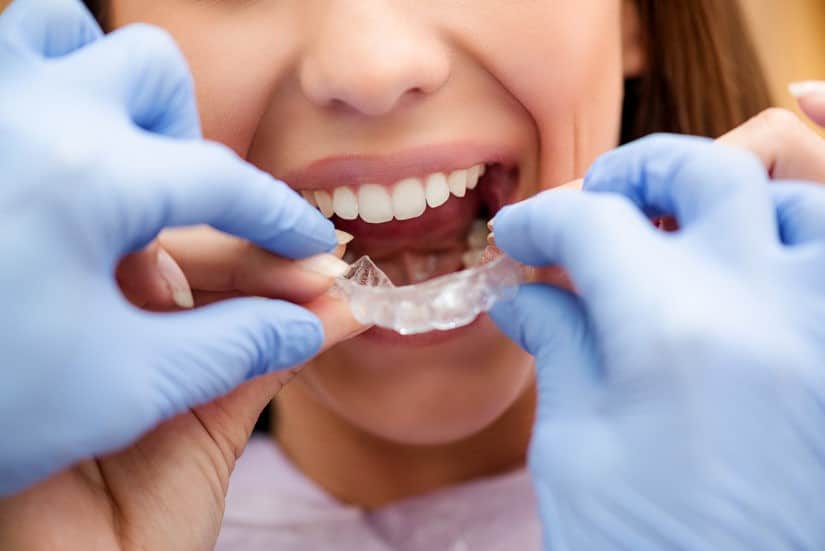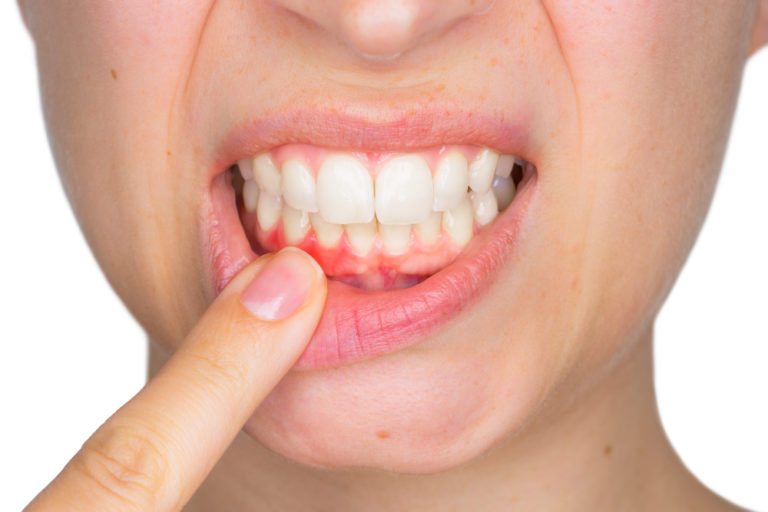
A popular method for straightening teeth is with the “invisible” alternative to traditional braces known as Invisalign™. Although it is very uncommon to experience, there are minor side effects that can occur with Invisalign™. There have been very few cases where patient’s experience an allergic reaction to their Invisalign™ aligners.
If you experience an itching sensation inside of your mouth or notice any swelling of the gums prior to starting the Invisalign™ treatment, you may be experiencing an allergic reaction. Here is everything you need to know about allergic reactions to Invisalign™:
Can I Get An Allergic Reaction From Invisalign™?

Although it rarely happens, there are instances where people do have an allergic reaction to their Invisalign™ aligners. Allergic reactions occur in patients with a susceptibility for sensitivity to plastic. Since the allergic reactions to Invisalign™ aligners are uncommon, it is very unlikely that you will experience any complications with the Invisalign™ treatment process.
However, if you know you have an allergy to plastic, it is important to advice your dentist before moving forward with the process. An allergic reaction to Invisalign™ can cause mild or, in the rarest of cases, severe symptoms. Mild symptoms include an itching sensation on the gum line and other soft tissue of the mouth including the tongue, roof of the mouth, or inner cheeks. Severe symptoms include:
- Shortness of breath
- Burning sensation in the mouth
- Swelling of the tongue and gums
If you are experiencing any type of symptoms, be sure to visit your dentist to discuss them and your options.
What Are The Triggers?
What triggers the allergic reactions to Invisalign™ is the plastic that is used to fabricate the aligners. Essentially, what occurs is the plastic in the mouth irritates the soft tissue and in turn, affects the production of saliva. Insufficient amount of saliva in the mouth leads to an increased sensitivity of the soft tissues of the mouth, including the gums, tongue and inner cheeks.
How To Determine If You Have An Allergy To Invisalign™?
If you suspect you have an allergy to the Invisalign™ aligners, the first step is to contact your dentist to discuss the symptoms. Although removing the aligners will affect the progression of the treatment, it can help determine if you do or do not have an allergy to the plastic. If you remove the aligners and notice the symptoms are no longer present, this will confirm that you are allergic to the plastic material.
Another method to determine if you have an allergy is removing a part of the plastic from the aligner and place it on your arm. Utilize a piece of tape to keep the material in place for a few days to determine if any changes or reactions occur to the skin. Allergy testing is another effective method in determining an allergy to plastic.
How To Prevent Allergic Reactions From Occuring?
To minimize the symptoms of your Invisalign™ allergy, drink cold water frequently to keep your mouth clean. This will also help replace the absence of saliva in your mouth. Another recommendation is visiting the dentist regularly. Dental cleanings every three months will help reduce any irritation and also help with the production of saliva.
Invisalign™ Treatment At Rockefeller Cosmetic Dentistry
Here at Rockefeller Cosmetic Dentistry we pride ourselves in perfecting smiles, and more importantly ensuring a comfortable and effective treatment. Our Invisalign™ alignment treatment provides patients with a straighter smile, without the inconveniences of metal braces. If you have Invisalign™ and notice a difference in your gums or an irritation in your mouth, contact our office. Our specialists will evaluate the symptoms and determine the optimal solution.
To schedule your consultation or for more information about our Invisalign™ treatment, call (212) 581-1091.




